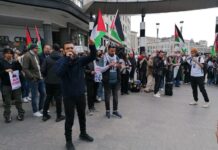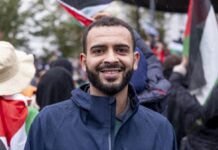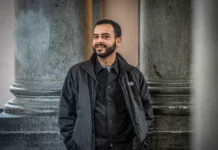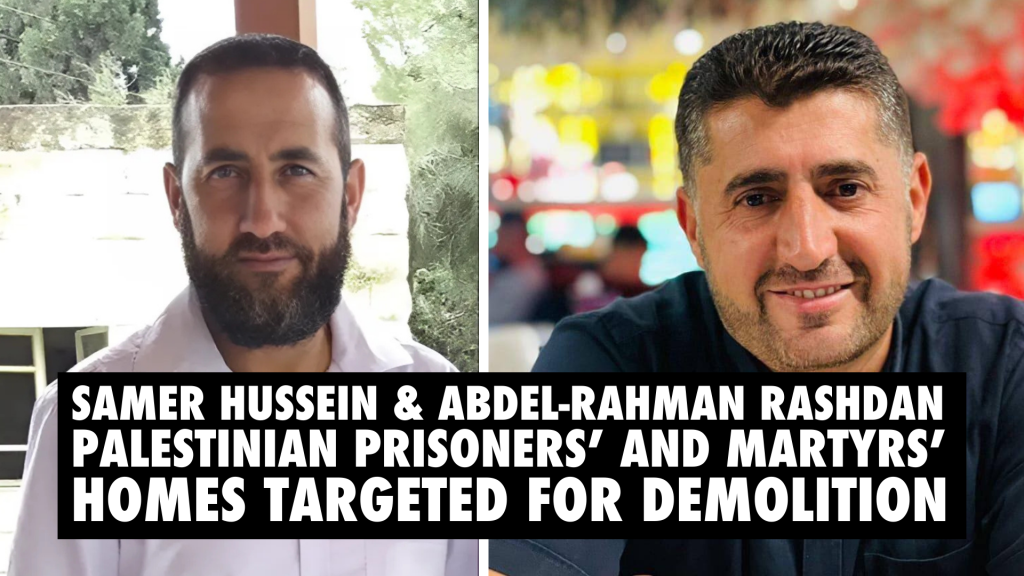
Occupation forces invaded the homes of Palestinian prisoner Abdel-Rahman Rashdan and the martyr Samer Hussein on Sunday, 1 December 2024, taking the homes’ measurements — typically done in preparation for their demolition by Zionist colonial forces.
The demolition of the homes of Palestinians imprisoned or martyred for their role in the resistance, like administrative detention, was first introduced to Palestine by the British colonial mandate and used against the Palestinian revolutionaries of 1936, and has become a systematic practice of collective punishment under the Zionist colonial occupation in order to target the families and communities of the prisoners and martyrs. The Zionist regime has announced a new policy of demolishing the home of Palestinians involved in the resistance even when no settlers or occupation soldiers were killed, and appears to be implementing this policy with the invasion of the homes of Rashdan and Hussein.
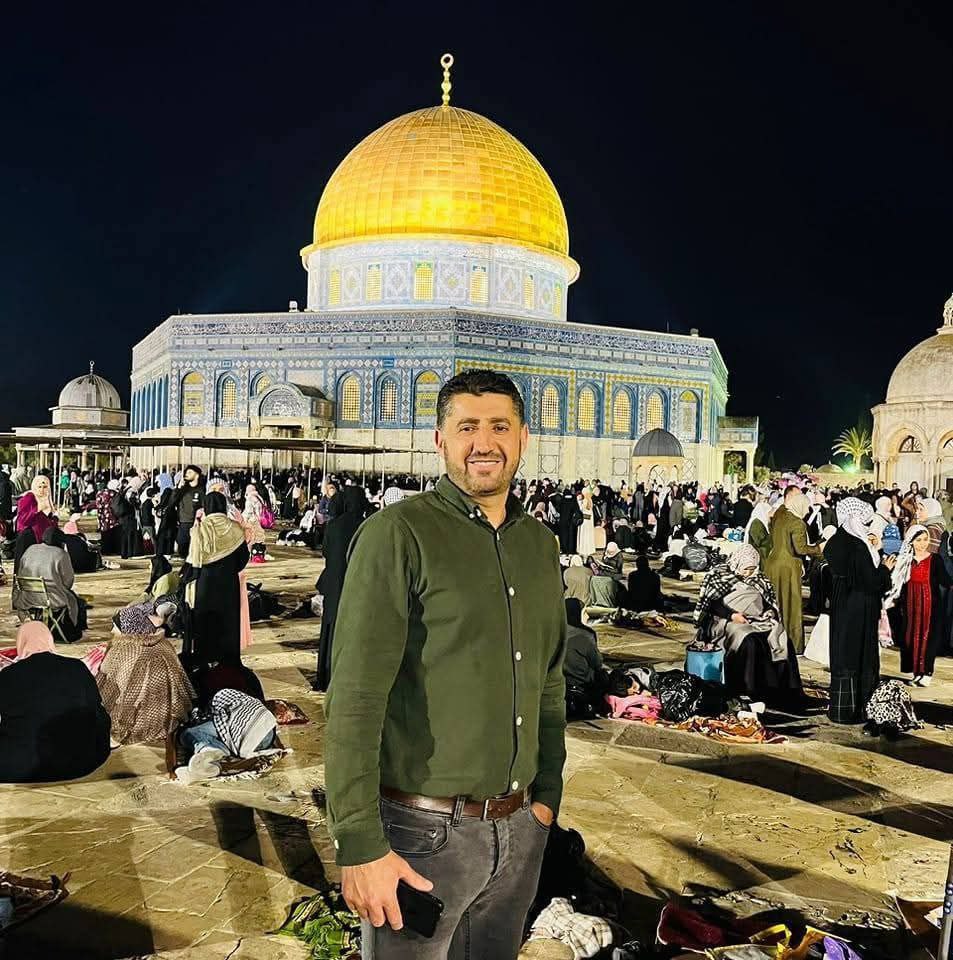
Both Rashdan and Hussein are from the village of Einabus, south of Nablus. Abdel-Rahman Rashdan was abducted by the occupation on Thursday, 28 November; he was released on 13 June 2022 after spending 19 years in occupation prisons for his participation in the Izz el-Din al-Qassam Brigades, the armed wing of Hamas, the Palestinian Islamic Resistance Movement, and his involvement in several shooting operations and planting explosive devices against the occupation as part of the resistance during the Al-Aqsa Intifada. He was greeted with a massive and enthusiastic reception upon his return to Einabus.
In August 2023, he was detained by the Palestinian Authority’s “Preventive Security” service under its “security coordination” agreements under the Oslo accords with the Zionist occupation regime. He was accused of collecting money for the resistance and possession of a weapon and subjected to torture and beatings before being released after launching a hunger strike to demand his freedom.
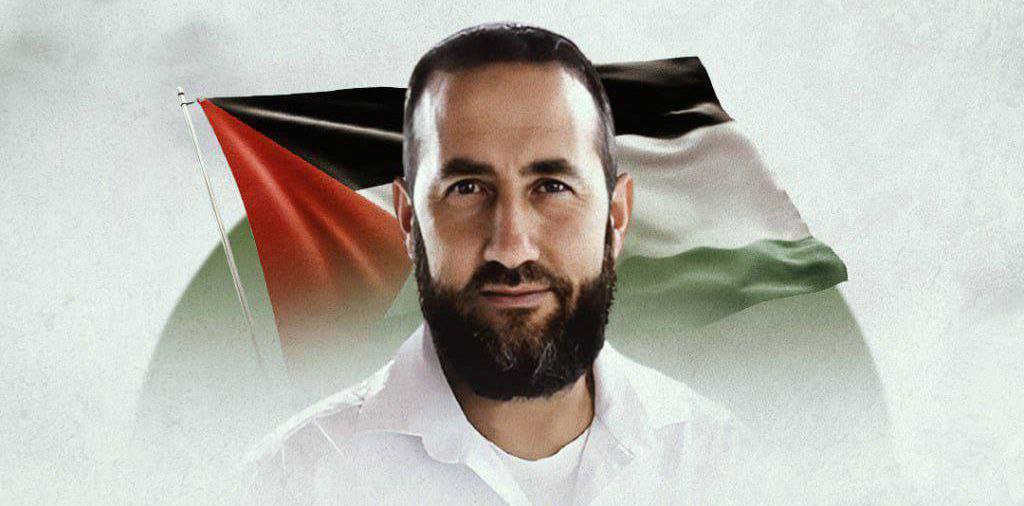
The martyr Samer Mohammed Ahmed Hussein, 46, carried out a resistance operation near the Ariel settlement on Friday, 29 November. The father of five children, he ambushed and opened fire on an occupation police patrol and a settlers’ bus transporting soldiers to the illegal colonial “Ariel” settlement built on stolen Palestinian land, injuring 9 soldiers and settlers. Occupation forces also arrested one of his sons while storming his home in Einabus following the operation.
Like Rashdan and many resistance strugglers in Palestine, the martyr Samer Hussein is a liberated prisoner. A struggler in the al-Qassam Brigades, Samer Hussein was arrested by the Zionist occupation regime in 2003, and served 20 months in occupation prisons, and was detained at least twice by the Palestinian Authority under its “security coordination” regime, accused of being a member of the Hamas movement. A deeply religious man, Samer Hussein also served as the imam at the Einabus mosque.
Like other forms of collective punishment such as the imprisonment of family members, the theft of the bodies of the martyrs, the invasion and attack of entire villages, towns and refugee camps, the Zionist regime aims to suppress Palestinian resistance and its popular cradle of support through the tactic of home demolition. Of course, the Zionist project seeks to demolish Palestinian homes and confiscate Palestinian land for any reason and upon any pretext, as is seen throughout occupied Palestine, including in Jerusalem and occupied Palestine ’48, where Palestinian buildings are frequently forcibly demolished for settlers or on the grounds of “lacking a permit,” which are always denied to Palestinians.
The escalation of the home demolition policy is part and parcel of the fascist Zionist genocide against the Palestinian people — particularly in Gaza — being armed and funded by the United States, Germany, France, Britain, Canada and other imperialist powers. Such efforts failed in the hands of the British colonial mandate and will continue to fail in the hands of the genocidal Zionist project and its allies, underlining once again the steadfastness of the Palestinian people and their deep rootedness in the land and willingness to struggle that cannot be suppressed through destruction, imprisonment and massacres.
Discover more from Samidoun: Palestinian Prisoner Solidarity Network
Subscribe to get the latest posts sent to your email.

